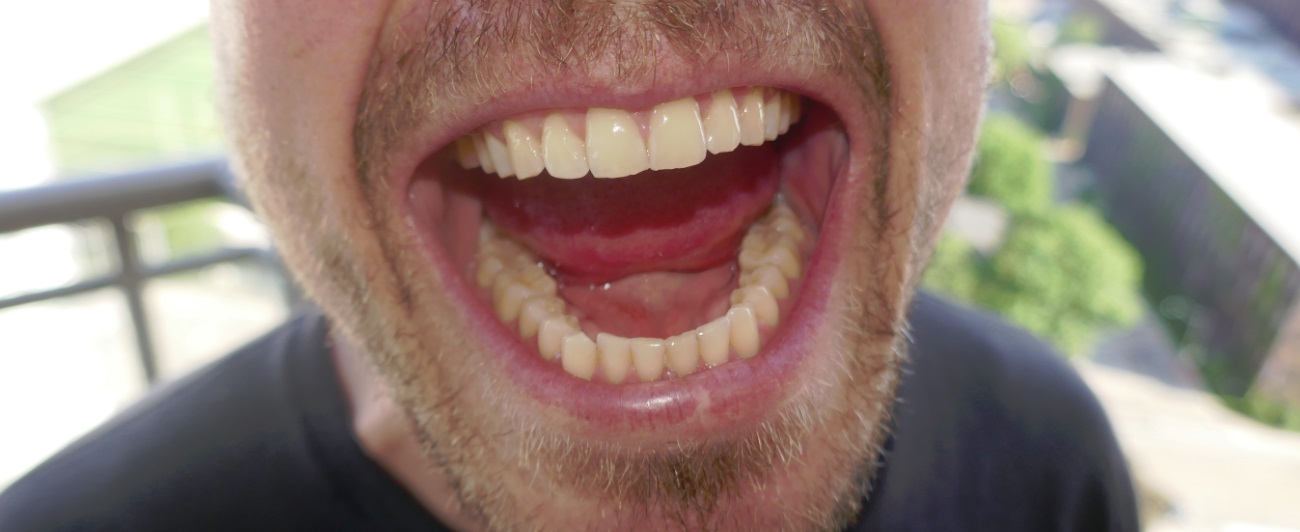
We’ve all heard of wisdom teeth, but many of us have no idea what they actually are or why so many people have them removed. We’ve put together a list of some frequently asked questions to help you learn more. Archer Dental practices wisdom teeth removal at all three of our locations in downtown Toronto.
What are wisdom teeth?
Your wisdom teeth are the third set of molars in the back of your mouth (the ones closest to your throat). Most people have four of them (one on each corner of your jaw) but not everyone does. They usually tend to grow in between the ages of 17 and 25, but your dentist can spot them in an X-Ray before then.
Why do we have them?
Wisdom teeth used to serve a very valuable purpose; according to anthropologists, we needed them to help properly chew and break down our ancestors’ early diet of leaves, roots and meats (which would wear down teeth much faster). The modern diet we tend to eat today contains softer foods that’s gentler on our teeth. This makes wisdom teeth more-or-less irrelevant. Much like the human appendix organ, evolution has rendered wisdom teeth near obsolete, and it’s an evolutionary fact that a growing number of people are being born without them!
Why are they removed?
Wisdom Teeth are generally removed if:
- They’re impacted (meaning they can’t come into your jaw normally due to their location at the back of your mouth and can get trapped in your jawbone or gums),
- They come in at the wrong angle due to excess crowding with your other teeth,
- Your mouth is too small and there’s no room in your jaw,
- You have cavities and are unable to brush or floss your wisdom teeth properly due to their difficult to access location.
Most people have room for a maximum of 28 teeth, meaning there’s no room for those extra 4 to grow in. Sometimes people will feel the effects of their wisdom teeth even before they start erupting into the mouth (causing pressure or throbbing in the back of the jaw)
Do all wisdom teeth have to be removed?
 No, not all wisdom teeth need to be removed – it’s very subjective and based on the dental situation of each individual patient. The photos on the left show an adult male with all his wisdom teeth.
No, not all wisdom teeth need to be removed – it’s very subjective and based on the dental situation of each individual patient. The photos on the left show an adult male with all his wisdom teeth.
Wisdom teeth typically do NOT need to be removed if they’re healthy, have grown in completely (meaning they’re fully erupted), are positioned correctly and bite properly with the opposing teeth on the upper or lower jaw, and are able to be be properly cleaned and flossed in a patient’s daily hygiene practices.
What happens when your wisdom teeth are removed?
Generally speaking, wisdom teeth removal is best between the ages of 16 and 22, though there are always exceptions.
Wisdom teeth removal is generally advised in patients while they’re still young because the formation of the root of the wisdom tooth in the jawbone is not complete so there are fewer complications and risks associated with the surgery.
Extraction (dental surgery) takes 45 minutes or less, and because your doctor may have to cut your gums or bone to access the teeth, you’ll get one of these types of anesthesia depending on the severity: local (a shot of Novocaine or breathing nitrous oxide, for example), IV sedation (your mouth will be numbed and you will also be given drugs to make you drowsy through a vein in your arm), or general anesthesia (you’ll either get drugs through a vein or breathe in gas through a mask. In both cases you’ll sleep through the entire surgery). Your doctor will stitch any incision in the gum shut with dissolvable stitches.
How long does it take to recover from surgery?
The average recovery time is about 3 days (though it may be longer) and swelling, soreness, and discomfort are likely side effects. Your mouth may need a few weeks to heal completely after surgery.

